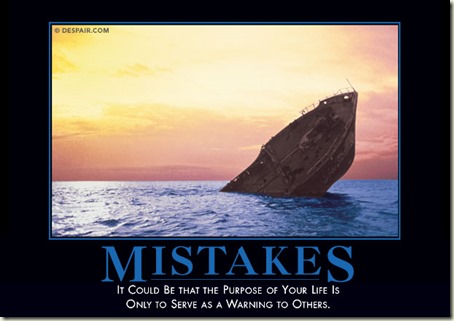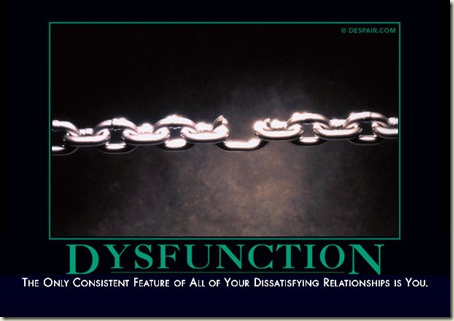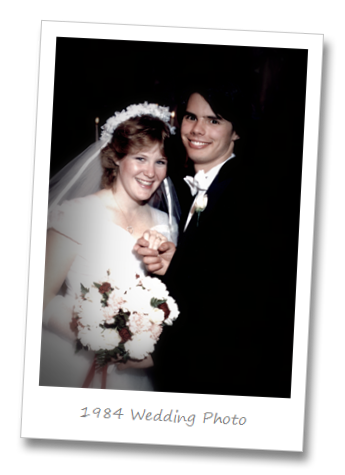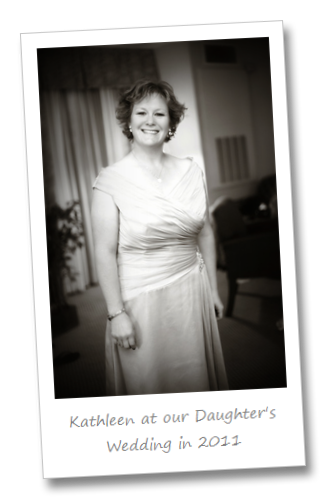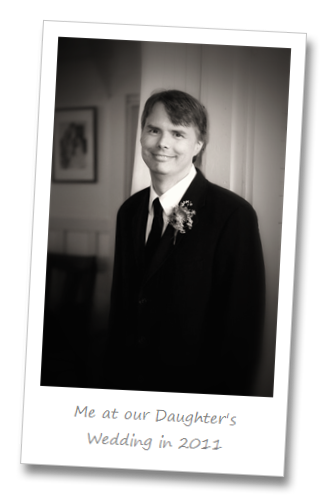A Few Thoughts on My 40th Wedding Anniversary
29 December 2024 • by Bob • Marriage
Today my wife and I celebrate our 40th wedding anniversary, which is no small feat by any stretch of the imagination. Together she and I have faced more than our share of triumphs and tragedies, prosperity and poverty, happiness and heartbreak. This year we joyfully greeted our fourth grandchild, while bidding a tearful goodbye to my wife's brother and aunt and my father. When my wife and I both said "I do" all those years ago, we were mere children ourselves, blissfully blinded by the stars in our eyes from the realities that lay before us. Side by side we survived eight years of Cold War deprivations during my time in uniform, followed by almost 30 years of my wife's career as a nurse and my never-ending adventures and misadventures with Microsoft. Through it all, however, she and I have trod the path before us hand-in-hand, and words cannot do justice to how much my wife makes everything better in life.
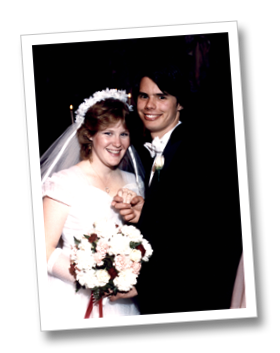
Perhaps the great Irish poet, Thomas Moore, expressed it best when he penned the following verses:
Believe me, if all those endearing young charms,
Which I gaze on so fondly to-day,
Were to change by to-morrow, and fleet in my arms,
Like fairy-gifts fading away,-
Thou wouldst still be ador'd as this moment thou art,
Let thy loveliness fade as it will;
And, around the dear ruin each wish of my heart
Would entwine itself verdantly still!
It is not while beauty and youth are thine own,
And thy cheeks unprofan'd by a tear,
That the fervour and faith of a soul can be known,
To which time will but make thee more dear!
Oh! the heart, that has truly lov'd, never forgets,
But as truly loves on to the close;
As the sun-flower turns on her god, when he sets,
The same look which she turn'd when he rose!
When in Rome
27 April 2023 • by Bob • Humor, Travel, Marriage
Let me tell you a funny story that I heard about the train station in Rome:
Once upon a time, there were two travelers in the Roma Termini who were on their way back from a long day in Pompeii, and they were changing from the cross-country trains to the metro. They had passed through that same station earlier that day, and one of the travelers noticed that the path they took through the station seemed unnecessarily long. However, he also noticed that there was another path they could take through the station, which seemed as though it would reduce their walking distance by hundreds of meters. When this first traveler suggested that they take a different route through the station, the second traveler said she didn't want to take the risk that an alternate path might take them too far out of their way. The first traveler said that he was 99% sure that his suggested route was shorter, but he couldn't guarantee his suggestion with 100% certainty, so the second traveler wouldn't yield.
Unbeknownst to the first traveler, the second traveler had an ulterior motive for her unwavering skepticism: they had been traveling all day in the hot sun, and she needed to use the little traveler's room, so she didn't want to waste a bunch of time wandering through a train station if the first traveler was mistaken. However, the second traveler didn't say that she needed to use the little traveler's room, so the second traveler seemed to the first traveler like she was being overly difficult for no discernible reason, while the first traveler probably seemed to the second traveler like he was being an insensitive schmuck.
With a not-so-subtle tone of exasperation, the second traveler told the first traveler something like, "You can do whatever you want, but I'm going to follow the route that we used earlier." The first traveler took the second traveler's statement as a challenge, so he left to pursue his shorter path through the station - which worked out exactly as he had expected - and because he was also more than a little exasperated with the second traveler, he boarded the metro without the second traveler.
The first traveler pouted all the way back to his hotel, where he arrived around a half hour before the second traveler. However, the reason why the second traveler arrived later wasn't because she needed to use the little traveler's room; she boarded a different metro car because she had the first traveler's metro pass, and she spent that half hour unsuccessfully searching the metro station in a desperate attempt to find the first traveler, which delayed her departure. However, unbeknownst to the second traveler, the first traveler had put aside his sulking long enough to buy a one-way ticket on the metro to get back to their hotel.
The moral of this little tale? Don't be so secretive when you need something, and don't act like an insensitive schmuck when your traveling companion doesn't agree with you.
Nothing in that story has anything to do with my wife's and my recent journey to Rome, of course. We always made it safely back to our hotel. Perhaps we arrived together. Perhaps we didn't. Perhaps one of us arrived a half-hour after the other, but that doesn't mean anything, does it?
![]()
The Ups and Downs of Illnesses
21 February 2019 • by Bob • Health, Marriage
I've had a cold for a few days now, and as of last night I lost my voice. (My wife, Kathleen, thinks this is an improvement in our relationship.)
Fun fact: when my voice disappears, so does my ability to cough loudly, so I sound like a dog's squeaky toy whenever I have to cough. (It's amazing Kathleen isn't laughing harder at my expense.)
![]()
Cow Chip Cookies on Valentine's Day
14 February 2019 • by Bob • Marriage
My wife special-ordered heart-shaped Cow Chip cookies for me for Valentine's Day. If you've lived in the Seattle area and you don't know about these cookies, then either a) you've been living under a rock, or b) you're dead.
PS - They were great, and yes - I shared.
Gaffes of the Galaxy
02 December 2018 • by Bob • Marriage, Humor, Christmas
My wife was shopping for Guardians of the Galaxy toys to donate to charity, and the following conversation took place:
| Kathleen: | So, I was going to buy Star Lord, Groot, and Ranger. |
| Me: | Ranger? |
| Kathleen: | Yeah, you know - the squirrel. |
| Me: | You mean Rocket? The raccoon? |
| Kathleen: | Yeah, that's the one. |
| Me: | o_O |
Why I Fail To Understand Women
24 May 2017 • by bob • Humor, Ponderings, Marriage
No woman in her right mind would want to be called a "Cow," and yet so many women shop at a place called the "Dress Barn."
This makes no sense to me... ![]()
The Importance of an Apology
23 April 2016 • by bob • Family, Marriage
A friend of mine recently shared the following article on Facebook about a study that was just published by Dr. Roy Lewicki and others at the University of Ohio on the subject of what constitutes an effective apology:
The Six elements of an Effective Apology, According to Science
While the information contained in Dr. Lewicki's study is certainly relevant, it is more or less a rehash of the material which Dr. Gary Chapman presented in his book The Five Languages of Apology: How to Experience Healing in All Your Relationships, which was published ten years ago.
Five of the six points in the OSU study's "new research" are directly lifted from Dr. Chapman's points - and they are almost verbatim quotes. To show just how closely Dr. Lewicki's points are to Dr. Chapman's, I will present the OSU study's list in the first column below, and then I will present the matching points from Dr. Chapman's book in the second column:
| OSU Study | Dr. Chapman's Book |
|---|---|
| 1. Expression of Regret | 1. Expressing Regret |
| 2. Explanation of What Went Wrong | n/a |
| 3. Acknowledgment of Responsibility | 2. Accepting Responsibility |
| 4. Declaration of Repentance | 4. Genuinely Repenting |
| 5. Offer of Repair | 3. Making Restitution |
| 6. Request for Forgiveness | 5. Requesting Forgiveness |
That being said, the OSU study ultimately draws the wrong conclusions; the OSU study suggests that there is one formula for apologies which works in all situations, whereas Dr. Chapman's book demonstrates that what is most-important in an apology for one person may not be for another.
For example, taking responsibility is of paramount importance to me, but not so much for my spouse. However, requesting forgiveness is extremely important for her, and yet Dr. Lewicki suggested that you could leave out the request for forgiveness entirely. If my wife and I were to follow the OSU study's recommendations, she and I would be apologizing to each other in ways that do not align with the other's communication needs, which will undoubtedly result in additional strife at a time when effective communication is most critical.
In contrast to the OSU study's conclusions, Dr. Chapman's recommendation is that each partner in a relationship learn their partner's expected form of apology and strive to address their partner's needs when expressing their apologies. Attempting to pigeon-hole the communication requirements for every relationship based on a single formula as the OSU study suggests is ludicrous.
So ultimately the OSU study is heavily plagiarized from Dr. Chapman's pre-existing research, and yet that study still manages to arrive at an incorrect outcome.
Thought for the Day (2015-11-30)
30 November 2015 • by bob • Humor
From Coleman Cox (in 1922):
"Never dispute the woman who says she has a model husband. Webster's Dictionary says a model is a small imitation of the real thing."
Looking Back on 30 Years of Marriage
29 December 2014 • by Bob • Family, Ponderings
Today my wife and I are celebrating our 30th Wedding Anniversary, which is the single-greatest and most-important adventure upon which I have embarked in my life. I remember when my wife and I were newly married and we would meet couples who had been married 30 years; I would think to myself, "Wow – that's such a long time." But now that I'm the one who has been married that long I think, "Wow – that sure went by fast."

But truth be told, I cannot take credit for the length of our union - I married someone who is an infinitely better person than myself. Seriously. Anyone who can put up with me for a mere afternoon is a miracle-worker, which probably elevates my wife to sainthood.
That being said, sometime around our 25th wedding anniversary I started getting questions from younger couples like, "What's your secret?" and "Why has your marriage lasted so long?" Let me be very clear - I am not an expert on marriage, and in general I am not a person who should be emulated; I am wholly aware of my many shortcomings as a human being, and I am overtly cognizant of my failures as a husband with regard to holding up my half of our relationship. (I always mean well, of course - but I am just as flawed as the next guy. Some days I simply forget to take out the garbage, or empty the dishwasher, or whatever. [Darn. I'm so ashamed.])
However, if I can't be a good example of a husband to anyone else, perhaps I can share a few of the things that I've learned from being a bad example. To quote the good people at Despair.com, perhaps my purpose in life is to serve as a warning to others:
With that in mind, here are some of the reasons why our marriage has endured, what has helped us over the years, and some of the lessons that I've learned the hard way.
I'd like to start things off by answering the question that I seem to get the most: "What is the secret to a long-lasting marriage?" Okay, if you're taking notes, you might want to write this down, because here it is:
Point #1 - Don't Get Divorced.
That's it. Period.
You could stop reading right now because you've already got the main takeaway from this blog. Now in case anyone thinks that I'm making light of this situation, I'm actually being perfectly honest. If you decide that divorce is not an option, it affects every part of your partnership. In our journey together, my wife and I have gone through incredible peaks and valleys - surviving both good and bad times - and many of these situations would have ended other relationships. In the past 30 years we have gone through everything we mentioned in our vows; we have endured sickness, health, prosperity, poverty, joy, adversity, etc. In the end, facing these seasons together and surviving side-by-side to live another day as husband and wife has bonded us together in ways which resemble the closeness of combat veterans. Collective perseverance yields intimacy.
I understand that there are situations where divorce is the only option; for example, when your spouse walks out on you, or your spouse is abusive and refuses to get professional help. When I talk about refusing to get divorced, I am speaking to those of you who get up one day and decide that you don't want to be married, or you claim that your spouse "just doesn't understand you anymore." When these feelings happen, you have to work your way through them. It takes conscious effort, but you made a commitment and you should not quit simply because you are wondering whether the grass is greener on the other side of the fence. Walking out on your marriage because you're bored or you don't want to do the work is little more than cowardice.
To be honest, the fact that my wife and I are still together is a much greater testimony to my next topic:
Point #2 - Christ.
Yes, I know - invoking the name of Christ is considered "Politically Incorrect" these days, but it is a simple statement of fact that my wife's and my faith has helped us weather countless trials and tribulations. So I don't care if it's an unpopular to talk about Jesus, because faith works. Don't argue with success.
Over the years I have learned this next valuable lesson:
Point #3 - Fighting Is Not Worth It.
I have to be brutally honest about whether my wife and I ever fight, and I sincerely wish that I could say we never quarreled. But the truth is - we used to bicker. A lot. In the early years of our marriage we fought like cats and dogs. And on that note, the unfortunate reality of our situation at the time is inescapable: I was 19 years old when I married my high school sweetheart and best friend, who was only 18 years old at the time. We went from kids to couple overnight, but only in the legal sense - maturity didn't show up until many years later. (Perhaps it still hasn't. Hmm. Probably best not to digress on that point.)
I would love to say that my statement about how "fighting is not worth it" was due to some grandiose epiphany which I arrived at through years of soul-searching and mature contemplation of our relationship. But the truth is much simpler, my secret to avoiding arguments boils down to one single concept: laziness. Seriously, fighting took way too much effort, and we eventually learned that it was better not to fight. Here's what an argument looked like in our house - we would disagree about something, which would escalate into a maelstrom of heated and hurtful words thrown back and forth between us. Eventually we would reach some form of resolution, but once the dust settled from the actual argument, we had to endure days of coldness as the two of us figured out how best to rebuild all of the trust which we had destroyed during the argument. It dawned on both of us that it took a great deal of effort to work up the anger for an argument, and the emotional trauma that we experienced was exhausting after our disputes had ended. Once we had realized that valuable lesson, both of us learned to recognize when we were hurtling toward another squabble, and we'd agree to skip over the major conflict part. It sounds easy enough, but it took us years to figure that out.
Now please don't get me wrong, I am not suggesting that we never disagree, nor am I insinuating that we do not defend our opinions passionately when we hold opposing positions on important topics. The truth is - we still differ on any number of subjects, but we both realize that nothing is worth losing our marriage. Together we have endured destitute poverty, years of work-related separations, the births and deaths of several family members, and raising three children to adulthood.
Throughout all of our combined experiences, I have vividly retained the following critically-important fact:
Point #4 - Always Remember Why You Married Your Spouse.
My wife and I were friends for several years before we ventured out on our first date. In fact, by the the time it occurred to either of one of us that we should be more than friends, many of our friends already thought that we were dating and were rather sick of the subject. (They're probably still sick of the subject, but after 30 years I really don't care. :-P)
Kathleen is my best friend, and we still hold hands when we walk together in public - which is how life should be; she has been the predominant character in all of my experiences as an adult, and she has been a major part of my life for almost 35 years. My wife is truly my better half, so why would I gamble all of our collective memories and life experiences by failing to remember the simple fact that I am sharing my life with the most-important and most-loving person whom I have ever known? If I fail to keep these thoughts in mind, I risk destroying everything. And that would make me a pretty selfish jerk. (Feel free to quote that to my face if it ever looks like we're headed for trouble.)
Point #5 – Be Self-Critical.
Believe it or not, you are not the perfect spouse. The folks at Despair.com got it right when they published a demotivational poster which reads, "The only consistent feature of all of your dissatisfying relationships is you."
While they were just making a joke, it should be noted that there is a lot of truth to that statement. More often than not, you will find that the source of unhappiness in your relationship is your attitude and not some shortcoming on your spouse's part. Every once in a while you need to step back and take a good look at yourself before lecturing someone else about their behavior.
I should probably mention one last thing before bringing this blog to an end:
Point #6 - A Good Marriage Takes Work. A Great Marriage Takes More Work.
Somewhere around our seventh year of marriage I decided that I wasn't content to have a 'Good Marriage,' I wanted a 'Great Marriage.' Unfortunately, I had no clue as to how we should go about creating such a thing. With that in mind, I decided to read at least one book about marriage each year. Some of those books have been great, and others I've tried hard to forget. A few books I have re-read years later; this has usually been an amusing experience for me, because I often discover that some part of a book which I thought was silly and chose to ignore at the time was eventually learned the hard way. In any event, there are a lot of good books on marriage out there, and you may think that some won't apply to your situation, but you have to be willing to try.
Two books which have been life-changing for me have been The Five Love Languages and The Five Languages of Apology by Dr. Gary Chapman; these two books probably changed all of my relationships with everyone I know - spouse, kids, parents, extended family members, friends, coworkers, etc. There are lots of other great books which I have read, but those two are a good start.
In closing, I may not be the best role model for a husband, and I have made more than my fair share of mistakes. But I have learned a thing or two along my journey from the cradle to the grave. I take no pride by admitting that most of my life lessons have been learned the hard way, so you can consider my advice from two perspectives: if I have been an idiot from time to time throughout our marriage, perhaps my advice isn't worth anything. On the other hand, if I've made enough mistakes as a husband to finally realize several of the most-important things to remember in a relationship, perhaps you can learn from my errors.
A Few Thoughts on my 27th Anniversary
29 December 2011 • by Bob • General, Marriage
When I was a child, there was an excitement that preceded Christmas as it approached each year. I am sure that most everyone knows what I mean by that statement; whether you are longing for Christmas, Hanukah, Ramadan, Kwanzaa, or even if you are an atheist that participates in some form of secularized holiday celebration. There is a sense of childhood excitement that surrounds the season; it could be the gifts, the decorations, the music, or a host of other contributing factors.
In a small way, I experience something like that feeling each week of the year; every Wednesday night for the past decade or so, my wife and I have had "Date Night." I do my best to never schedule anything that conflicts with this tradition; and as each Wednesday comes around, I look forward to going out to dinner or a movie with my wife in something of that same good-natured attitude of child-like expectation that I used to have at Christmas.
Date Night is a recent endeavor for us; which is unfortunate, but somewhat unavoidable. Both Kathleen and I went directly from living at home to being young, married, and poor; and soon after that we became parents. We were great friends in High School and our first year of college, but we jumped forward several years almost overnight; and as a result, we went from being children to being parents with barely a chance to discover who the other person really was.
Please don't misunderstand me - parenthood was a mixed blessing of training and teething, schooldays and sporting events, chaos and concerts, happiness and heartaches; and I would not trade a moment of my joys or sorrows as a parent. (Well, maybe I could do without the memories from one of my daughter's first boyfriends - and he knows who he is. ![]() ) But that being said, Kathleen and I missed out on the opportunity to explore who we were as a couple all those years ago; which is why I enjoy each week's rediscovery that long before I loved my wife, I actually liked my wife.
) But that being said, Kathleen and I missed out on the opportunity to explore who we were as a couple all those years ago; which is why I enjoy each week's rediscovery that long before I loved my wife, I actually liked my wife.
There is a wonderful scene in the musical Fiddler on the Roof where the main character, Tevye, asks Golde, his wife of twenty-five years, "Do you love me?" I didn't fully understand this scene when I was younger; I simply thought that it was amusing.
But in recent years, Golde's responses to Tevye's simple questions have impacted me differently.
"For 25 years I've washed your clothes,
Cooked your meals, cleaned your house,
Given you children, milked your cow.
After 25 years, why talk about love right now?
"For 25 years I've lived with him,
Fought him, starved with him.
25 years my bed is his;
If that's not love, what is?"
I truly loved my wife on the day that we exchanged rings and we both said "I do" before our friends and family. The reasons why I loved my wife on that day are still there: she has an odd sense of humor, we complement each other well, and she is my best friend. But the trials and tribulations that we have endured together over the past twenty-seven years have changed the dynamics of that relationship.
In our marriage vows Kathleen and I promised to love each other for richer or poorer, for better or worse, and in sickness or in health; and we have endured each of those seasons in due course over our many years of marriage. It is precisely that collection of experiences that has bonded us together in ways for which a night out every week could never substitute; in much the same way that veterans of a war are bonded together in a way that supersedes the love between the closest of siblings.
Two years ago, on our twenty-fifth anniversary, I gave Kathleen a framed portrait that contains our wedding photos and the following quote from Mark Twain:
"Love seems the swiftest, but it is the slowest of all growths. No man or woman really knows what perfect love is until they have been married a quarter of a century."
In many ways that sums up my feelings: I loved my wife when I was nineteen for as much as I understood that concept at the time; but now that I am somewhat older, and perhaps somewhat wiser, I love my wife in ways that I couldn't possibly have understood back then. I tell Kathleen every day that she is my favorite person; and because of that, every week may not be Christmas, but just the same - I look forward to spending each week with her all the more.


